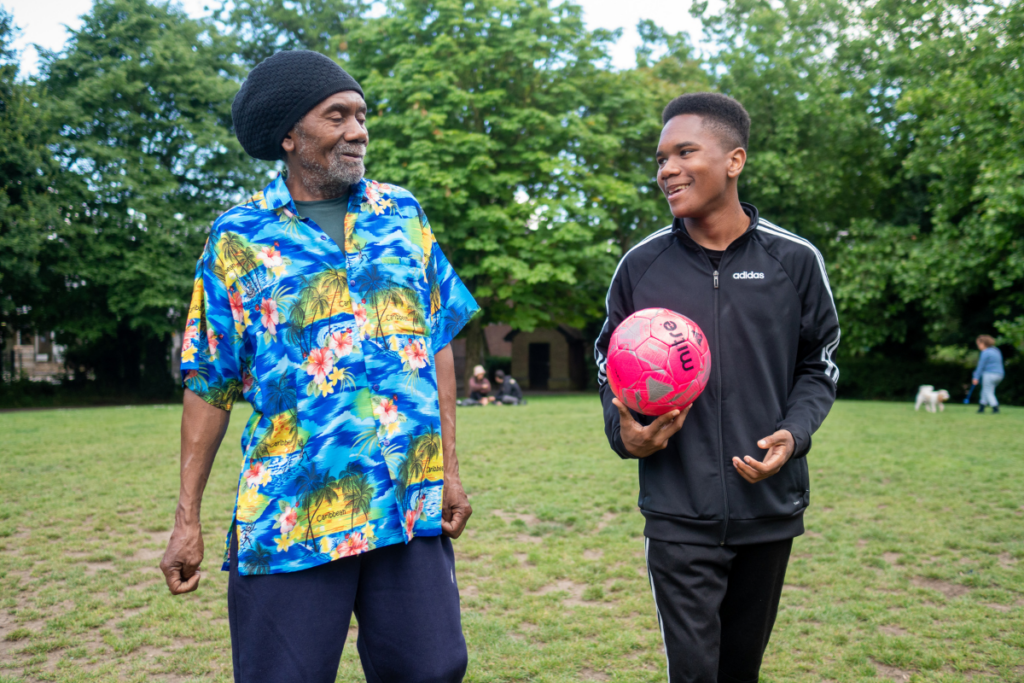Running focus groups for research and evaluation purposes

Professor Andrea Wigfield (Centre for Loneliness Studies) recently ran a Hub co-working session on how to run focus groups for loneliness research and evaluation purposes. This blog post explores just a few of the key tips and insights shared as part of the discussion. If you’re a member of the Hub, visit the Loneliness Evaluation group to access a copy of the slides.

What is a focus group?
A focus group brings together a small group of people who share common characteristics, such as gender, ethnicity, age or a common experience, in order to facilitate meaningful discussion.
Focus groups are not meant to be representative of a population. Instead, they provide a snapshot of a specific issue with a specific group of people. Unlike an interview when a series of questions are followed, a focus group allows for a skilled facilitator to undertake a broad and detailed exploration of the topic.
What are the benefits of using focus groups?
Focus groups can provide a deeper understanding of participants’ perspectives and experiences that might otherwise be challenging to uncover in one-on-one interviews.
A comfortable group setting can lead to more authentic and insightful conversations, which in turn can help to identify a range of views and highlight the issues which are most important to the group.
Are there any disadvantages of using focus groups?
Focus groups require skilled facilitation to ensure all participants have a chance to contribute. There is a risk that some participants may dominate the discussion, potentially silencing others, so facilitators must work to involve everyone in the discussion.
Researchers can also have less control over focus group discussions compared to individual interviews, as the conversation can change unpredictably.
Planing your focus group
There are a few key points to consider when setting up your focus group:
- Define the purpose: Begin by clearly defining the purpose and the aims of running the focus group.
- Identify participants: Determine who you want to study in the focus group and consider whether a focus group is the best method to collect the required information.
- Consider the group size: An ideal focus group should consist of seven to ten participants. While smaller groups are possible, it’s generally not advisable to have fewer than three participants, and larger groups may lead to difficulties in retaining participant interest, potentially resulting in the need for breakout groups.
- Sampling strategy: Decide on your sampling strategy. Targeted sampling often works better than random sampling in focus groups due to recruitment challenges.
- Advance planning: Plan well in advance, considering a venue where participants will feel relaxed, as well as considerations around accessibility, transportation, and potential care responsibilities of participants. While focus groups are less time-consuming than large surveys, the recruitment process can be time-intensive. If resources allow, you might also consider offering small incentives like gift tokens to encourage participation.
- Facilitator and assistant: While a facilitator alone can conduct a focus group, having an assistant can be beneficial. The facilitator can guide the discussion, introduce participants, and ask questions, while the assistant can focus on body language, take notes, record the discussion, and ask prompting questions.
Developing a topic guide for your focus group
The topic guide is there to provide structure to the focus group. As a facilitator, you should familiarise yourself with the topic guide so you can move smoothly from one question to the next, and have follow-up questions and probes ready in case the discussion doesn’t flow naturally in a particular direction.
A topic guide should include a set of no more than ten open-ended questions to encourage discussion and exploration of participants’ perspectives. Start with general questions which move progressively to more specific ones as the discussion unfolds. It is also a good idea to test the questions with colleagues, volunteers or service users beforehand to ensure they are clear and not upsetting for participants.
Facilitating a focus group
The facilitator plays an important role from the outset, helping to make participants feel welcome and at ease from the moment they enter the room. As the focus group gets underway, the facilitator can use a range of techniques to ensure everyone has a chance to speak and contribute, including:
- Clearly communicating the purpose and expected outcomes of the focus group.
- Setting ground rules at the start so people are clear that you want everyone to have a chance to contribute.
- Using ice breakers to allow for early participation of all group members.
- Using open-ended questions, active listening, and then being ready to probe and follow-up further on points raised if necessary.
- Maintaining a non-judgemental stance and neutral body language throughout the discussion.
- Providing feedback to participants, either at the end of the focus group or through a short summary, to keep them informed about the results.
Analysing and reporting focus group data
Focus groups generate qualitative data in the form of statements and quotes. As a result, it’s important not to try and quantify responses, such as “four out of seven people said”, as this is not the primary purpose of a focus group. Instead, analyse the data to compile a comprehensive report, ensuring you don’t misrepresent the statements and quotations.
The report should include:
- Participant information: Describe how you sampled and recruited participants, including characteristics like age, gender and any other relevant details.
- Process overview: Explain how the focus group was conducted, including the use of a topic guide and any other techniques employed.
- Primary issues and themes: Discuss the primary issues that emerged during the discussion and any recurring themes. Use quotes and examples to illustrate the variety of opinions and viewpoints expressed during the focus group.
- No statistical claims: Avoid making claims about representativeness or using statistics with qualitative data. Focus on presenting a range of views.
- Respect anonymity: Ensure that participants’ identities are protected when quoting them in your report.
Further support
Facilitating a successful focus group requires a blend of skills, from creating a welcoming environment to managing discussions effectively. If you would like further training on running focus groups as part of your loneliness evaluation approach, get in touch with the Centre for Loneliness Studies team.





Responses